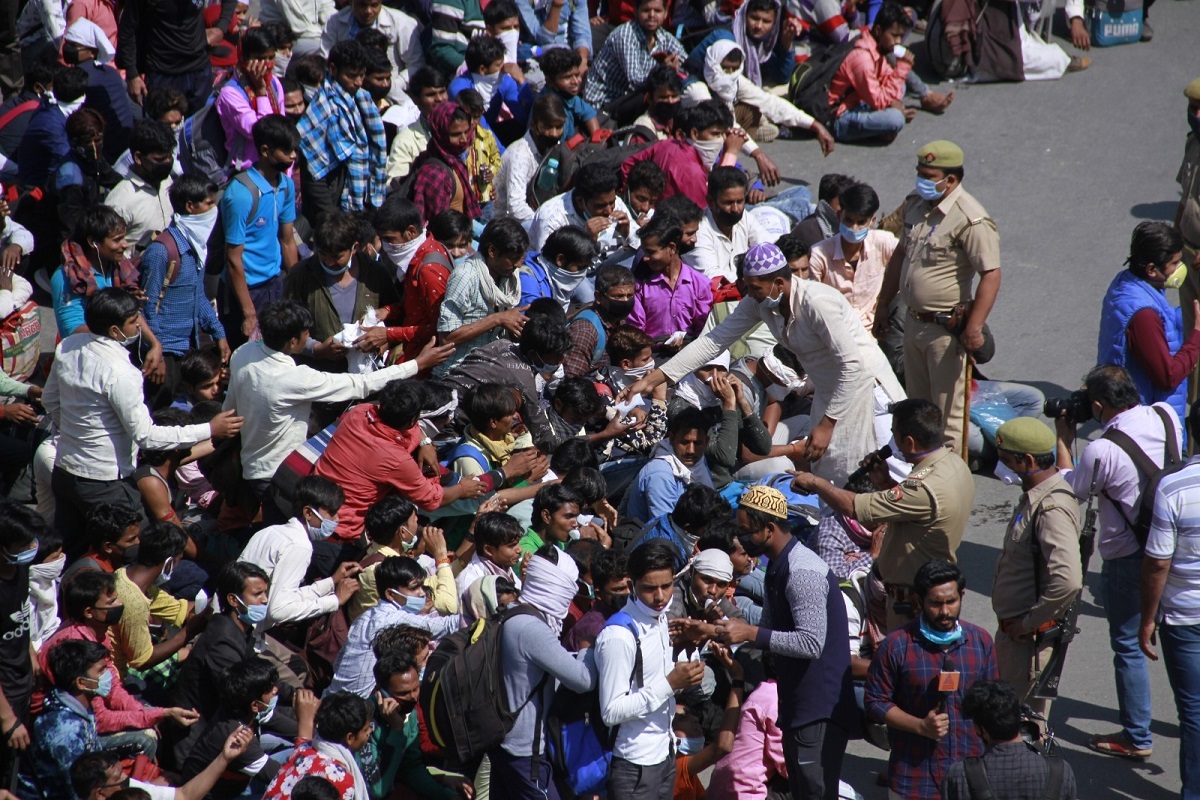LS polls: PM Modi to campaign in Maharashtra, Goa today
Prime Minister Narendra Modi on Saturday will campaign in Maharashtra and Goa for the Lok Sabha elections.
What the State got instead was a geo-fencing app called Covid-19 Quarantine Alert System which will collate telephone data including the device’s location and alert local agencies in case of violation by Covid-19 patients under surveillance or in isolation.

(Photo: IANS)
Kerala has the best public health service system among all the States in the Indian Union. Therefore, it came as a surprise when it registered the largest number of Covid-19 cases, until overtaken by Maharashtra. Chief Minister Pinarayi Vijayan of the CPI-M has sought the help of the Centre to procure coronavirus testing kits. Response has been less than lukewarm.
What the State got instead was a geo-fencing app called Covid-19 Quarantine Alert System which will collate telephone data including the device’s location and alert local agencies in case of violation by Covid-19 patients under surveillance or in isolation.
It can also snoop on the citizens. Kerala had the double misfortune of a large number of its people attending the Tablighi Jamaat convention at its headquarters in Nizamuddin, New Delhi, from February onwards which turned out to be the epicentre for the spread of Covid-19, and the Airport Authority of India in Kochi neglecting to screen about 300 visitors from the United Kingdom, Italy and West Asian countries who arrived at Kochi International Airport between March 19 and 24.
Advertisement
Two of the health department officials posted at the airport tested positive on 29 March. The unchecked visitors from abroad turned out to be carriers of the coronavirus and are undergoing treatment and quarantine in the State. Vijayan’s appeal for everyone to rise above partisan politics and parochial interests has fallen on deaf years.
Kasaragod, the northern district of Kerala bordering Karnataka with a population of just 13 lakh, has traditionally depended on Mangalore, its closest urban centre, now part of Karnataka, for its civic needs, especially healthcare. This underdeveloped district registered more than 130 Covid-19 cases and they sought medical help and hospitalisation in Mangalore as per long-held tradition.
Karnataka, where the BJP is in power, blocked their entry, quoting border closure following the 25 March nationwide lockdown. The Kerala government approached the High Court to get the border restriction by Karnataka removed. India is a federal Union of States and the right of a citizen to move freely throughout the country subject to reasonable restrictions is recognised under Article 19(1)(D) of the Constitution.
The High Court ruled Karnataka’s border restrictions were illegal and directed the Central government to get them removed. Karnataka responded by erecting an earthen wall across the National Highway linking the two States. Karnataka’s minister for culture and tourism, CT Ravi, responded to the Kerala High Court order asking, “should Karnataka suffer at other’s cost?”
Our federal system of governance is highly Union-centric and leaves little power to States to regulate interstate traffic. When the Prime Minister announced a nationwide lockdown on 24 March to contain the spread of coronavirus, every State in the Union sealed their borders. The Constitution gives the right to move freely throughout the country to every citizen of India.
Two people have already died in Kasaragod. The Supreme Court is yet to give its verdict on the maintainability of the Kerala High Court order. Before more lives are lost, the Prime Minister must act and give directions to the two neighbouring States to do what is right.
Advertisement